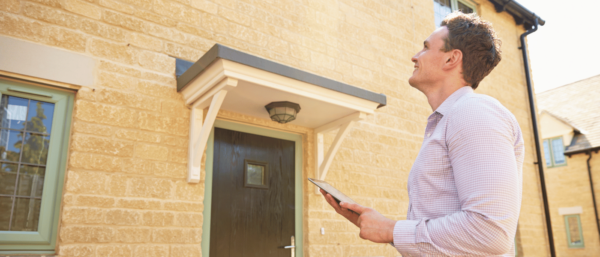How to become a property valuer in the UK.

In the financial year 2022-23, almost 1 million residential property transactions took place in the UK, supported by the property valuers who use their expertise to provide important insights to their stakeholders.
But what is a residential property valuer, what do they do, and how do you join the profession?
What is a property valuer?
A residential property valuer, or valuation surveyor, is charged with assessing the current ‘market value’ of an asset such as a house or flat. Assessments are carried out to enable mortgage lenders to manage their lending risk, provide guidance on investment and more.
The ‘market value’ is an important figure used to guide the amount a property is marketed for as well as to estimate the price a property could sell for on the market.
What does a property valuer do?
Residential valuers must take a holistic approach to their role, considering both the specific characteristics of a property and the broader economic and market conditions to arrive at an accurate and fair valuation.
In the residential sector alone, there are many reasons to undertake a property valuation, including but not limited to:
- Valuations for purchase – including mortgage and homebuyer valuations
- Help to Buy and Shared Ownership valuations
- Right to Buy valuations
- Valuations for taxation including probate.
To carry out a valuation, the valuer will conduct a short visual inspection of the property, using their keen eye for detail to scrutinise every aspect, inside and out. This is then followed by extensive desktop research. The valuer will need to consider aspects of the property such as:
- Location
- Size and features
- Comparable sales
- Market conditions and trends
- Zoning and planning regulations
- Building and structural integrity
- Environmental factors, e.g. flood risks
- Legal and title issues, e.g. easements
- Economic influences, e.g. inflation
Property valuations are sometimes called ‘Red Book’ valuations, referring to the ‘Red Book’ rules and guidance issued by the Royal Institution of Chartered Surveyors (RICS). The ‘Red Book’ includes a number of Valuation Standards for valuation surveyors to observe and also stipulates that valuers must be registered with (and therefore answerable to) RICS in order to carry out RICS-compliant valuation work.
How to become a property valuer
Your route into residential property valuation is largely dependent on your experience. If you have no prior industry experience, you will need to complete a relevant qualification such as:
- A RICS-accredited university degree in a subject such as real estate management or real estate surveying, or a postgraduate conversion course if you already have a degree.
- A surveying apprenticeship.
- A vocational qualification such as the Sava Diploma in Residential Surveying and Valuation.
If you already have experience in the property industry and are a current surveyor or property professional with RICS, CABE, CIOB, CIAT or ICWCI membership, you can upskill as a residential property valuer through the Sava Certificate in Residential Valuation. This qualification is completed entirely online and enables existing professionals to qualify and join the RICS Valuer Registration Scheme through a registered firm to offer residential property valuations.
Find out more about Sava’s surveying and valuation qualifications:
To date, Sava has supported more than 700 surveyors and valuers through their vocational qualifications and into exciting new roles.
To talk about how Sava can help you achieve a rewarding career in residential surveying and valuation, give our course advisors a call on 01908 442158 or email us at hello@sava.co.uk.